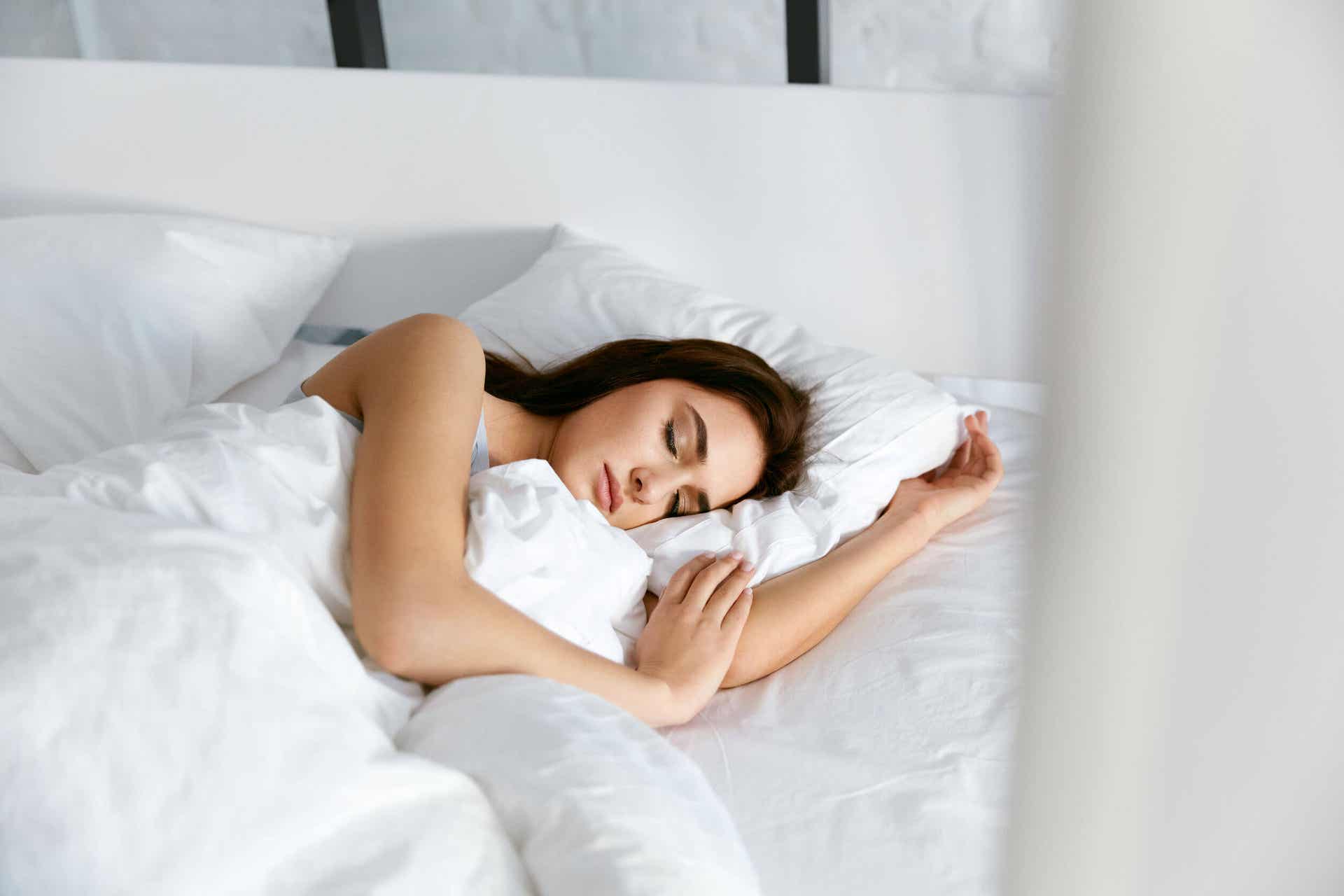Why is it Good to Take a Hot Bath before Bed?


Written and verified by the doctor Leonardo Biolatto
Taking a hot bath before going to bed is one of the techniques specialists recommend to sleep better. Although it isn’t a solution to chronic problems such as insomnia, it does appear to be a good help to induce rest and improve sleep quality.
In fact, a systematic review led by Shahab Haghayegh, a researcher at the Department of Biomedical Engineering at the University of Texas, supports the benefits of taking a hot bath and suggests doing so at a certain time before bedtime.
Want to know more about it?
Taking a warm bath to sleep better: Why does it help?
According to the systematic analysis of Haghayegh and his team, taking a bath with hot water before going to sleep helps to change the internal temperature and, in this way, promotes rest. To reach these conclusions, the researchers reviewed 5322 studies and used at least a dozen using more robust methodologies.
The final report was published in Sleep Medicine Reviews and states that taking a hot bath at a temperature between 104 and 107 F° (40 and 42 °C), about 90 minutes before going to bed, helps people sleep better. Specifically, it seems to help people fall asleep about 10 minutes faster than usual.
These findings were made possible after analyzing the effects of “passive water-based body warming” on various sleep indicators such as:
- Sleep onset latency, which is the time it takes to go from full wakefulness to sleep
- Sleep efficiency
- Subjective sleep quality

You may be interested in: Restful Sleep – How Much Do We Really Need?
Body temperature and sleep
Over time, scientific research has established that circadian rhythms regulate functions such as sleep and core body temperature. Thus, scientists have also determined that body temperature rises 2 to 3 degrees higher in the late afternoon or evening. During sleep, on the other hand, it’s lower.
When it’s time to go to bed, the average individual suffers a drop of 37 to 42 °F (3 to 6 °C )in body temperature. The lowest level occurs between the middle and later periods of sleep. Once it’s time to wake up, the temperature begins to rise again.
Paradoxically, it seems that taking a hot bath cools the body by stimulating blood circulation from the inner core to the periphery, i.e. the hands and feet. When this happens, the pineal gland signals the production of melatonin, and sleep is induced.
Some may wonder: Why hot water and not cold water? Well, although at first glance it may seem more logical to use cold water to lower the temperature, the mechanism doesn’t worth the same way. Cold water triggers the body into a fight or flight response, increasing the state of alertness.
Therefore, the recommendation is simple: a shower with hot water, for about 10 minutes, 90 minutes before going to bed. However, since the evidence is still limited, it’s important to be cautious. We can’t forget that excessive hot showers are associated with side effects.

Discover: 5 Tips on How to Wash Your Bedspreads
What else can we do to sleep better?
As we’ve seen, taking a hot shower can be an option when sleep difficulties appear. However, there are other recommendations we can take into account to contribute to a restful sleep. According to information from the National Sleep Foundation, these may include:
- Maintain a regular sleep schedule. That is, having the same time to go to bed and wake up, even on weekends.
- Avoid long afternoon naps. A nap of 20 or 30 minutes is enough. If you have problems sleeping at night, it’s better to avoid them.
- Do physical exercise. Both moderate and vigorous exercise has beneficial effects on rest.
- Ensure a comfortable and quiet environment in the room. The bed must be clean and comfortable. In addition, avoid distracting elements such as mobile devices, televisions, computers, etc.
- Avoid consuming stimulants. This includes alcohol, tobacco, and caffeine.
- Try relaxing activities. This can be reading a book, meditating, doing breathing exercises, listening to nature sounds, among others.
Lastly, it’s also important to remember that, in case of continuous difficulties to sleep, or insomnia, the best thing to do is to go to a professional. A specialist in sleep disorders will be able to help establish the origin of the problem and the most appropriate treatments.
All cited sources were thoroughly reviewed by our team to ensure their quality, reliability, currency, and validity. The bibliography of this article was considered reliable and of academic or scientific accuracy.
- Haghayegh, S., Khoshnevis, S., Smolensky, M. H., Diller, K. R., & Castriotta, R. J. (2019, August 1). Before-bedtime passive body heating by warm shower or bath to improve sleep: A systematic review and meta-analysis. Sleep Medicine Reviews. W.B. Saunders Ltd. https://doi.org/10.1016/j.smrv.2019.04.008
- Zhu L, Zee PC. Circadian rhythm sleep disorders. Neurol Clin. 2012;30(4):1167–1191. doi:10.1016/j.ncl.2012.08.011
- National Sleep Foundation. (n.d.). Healthy Sleep Tips. Retrieved on April 16, from https://www.sleepfoundation.org/articles/healthy-sleep-tips
This text is provided for informational purposes only and does not replace consultation with a professional. If in doubt, consult your specialist.








